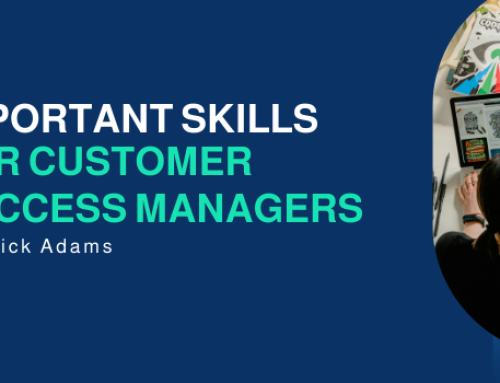Become the CEO of Yourself
Introduction
Many years ago, I attended a self-employed/small business workshop, and whilst I cannot remember anything else from this particular workshop, one nugget of inspirational wisdom that I came away with which has remained with me to this day is this: Ultimately, we are each responsible for our own thoughts, deeds and actions, and we each need to step up to the plate and take that responsibility seriously. To put it in simple terms: To succeed in life, I need to become the CEO of Myself.
Ambitions and Responsibilities
Everyone has ambitions. Those ambitions will differ in type and scale between people, but nevertheless, we all have them. So how come some people seem to manage to realize their ambitions to a far greater extent than others? I personally think that a complete answer to that question will differ to some extent for each of us and is probably quite complicated for many of us. But I also think that one critical factor for successfully fulfilling everyone’s ambitions is for the person themselves to take full responsibility for making it happen, whatever their individual, unique circumstances might be.
Responsibility is a double-edged sword, and perhaps this is why some of us can sometimes be guilty of avoiding it. On the one hand, responsibilities convey the opportunity to take positive actions to get things done. On the other hand, if enough of the right actions do not get taken (either because we didn’t do enough, or because we did the wrong things) we can be justifiably blamed for poor performance. To put it another way, responsibility confers duty, and duty requires not just work, but also the right kind of work – the kind of work that achieves results.
Over-Confidence and Under-Confidence
Scary stuff! Especially scary if we have unjustified doubts about our own abilities. Perhaps we have low levels of self-confidence and /or self-esteem. These types of issues can really hold us back, because we may be telling ourselves that we are not good enough, clever enough, and/or deserving enough to do well in the role we would dearly like to apply for if only our own self-doubts did not hold us back.
That’s not to say we should be over-confident either. It is important to be realistic with ourselves about our current levels of skills, experience, and abilities. The over-confident person is likely to make mistakes that could lead to all sorts of expensive consequences. Being over-confident can lead to the experience of unnecessary stress being suffered since the over-confident person can unwittingly put themselves into a position where they cannot fulfil the requirements of that position, and that can be a very stressful experience indeed.
Whilst some people do indeed develop a tendency to be over-confident, it is a lot more common for people to feel what we might describe as under-confidence. Unfortunately, the world we live in tends by its nature to do this to us. Unless you are one of the fortunate few who have been well supported by friends and family throughout their lives, the majority of us have experienced a world where if we announce our intention to improve ourselves in any way, we are often met with negative statements from those that surround us. This could be in the form of well-meaning but nevertheless bad advice, or it could even be simple, full-on derision, or anywhere in between. But however it arrives, what it does (if we allow it to do so) is beat down our self-confidence, deflate our opinion of our own abilities and generally prevent us from moving forward.
Negativity from Others
There are all sorts of reasons why people might be like this. It may be that they genuinely want to protect you from yourself and are trying to help. Very commonly, they do not want to see you succeed in ways which they themselves have not succeeded, since by comparison against someone more successful they will look less good to themselves. This is a very common behavior and is why it is vitally important as much as one can to choose one’s friends and acquaintances wisely. There is much truth in the saying “If you want to become wealthy, associate with wealthy people.” Whatever your aspirations are, try to associate with those who either are fulfilling or who have fulfilled the same types of aspirations as those you have. Being around positive-minded, successful people in your field will up your game and will also associate you with multiple opportunities for learning and growing your own skills and experience.
Do Not Rely on Your Company or Manager
Another misunderstanding that people often have is that their company and/or their manager is responsible for their career development. This attitude is understandable since many of the career development opportunities we encounter will come from these sources. But here’s the thing; at the end of the day, the company (and therefore by implication the managers that the company hires and pays the salaries of) must always take the company’s best interests into consideration first. If it doesn’t do this, then it will potentially fail as a business. The company already provides employment for you, and most companies and most managers want their employees to do well for themselves. They perceive that they have a duty of care towards all of their employees, and they want to fulfil that duty to them. However, not all companies have such a culture of high ethical and moral responsibility towards its workforce, and not all individual managers are able to personally live up to these standards, whether that might be because they simply do not share that ethical position, or because they are unable to fulfil their obligations because they are under pressures of for example workload, or lack of funding, or performance targets that prevent them from doing so, or simply perhaps they do not have the expertize needed to be a competent manager in this area.
The point of course is that you should not and indeed need not rely upon your company and your manager for your own future career success. If you have a great employer and/or a wonderful manager, then of course that is fantastic (and this level of support for developing your career is definitely something to weigh up when considering any future employed position). Make full use of whatever resources and opportunities that come your way. Also, consider who else within your department or wider organization might be able to coach or mentor you, and do not be shy in asking – after all, they can always say “no”, right?
The One Constant is You
Friends, acquaintances, colleagues, and managers can and will come and go in our lives. At the end of the day, the one person you can always rely upon to care about your career really, truly, and deeply is of course… you yourself. This is why you need to appoint yourself to be the CEO of “You Incorporated”. Taking the time to actually appoint yourself to this role, conveys meaning to the role. Whereas before you “sort of” knew you were responsible and were “sort of” half-doing the job already, now you are fully committed to the CEO of Myself role, and therefore fully committed to performing that role well. Actively “signing up” for the role in this way may seem like a minor point, but the psychology behind it can make all the difference!
So then having made this commitment to yourself, what should you do? You need to proactively make time to develop and write down a vision for your career, something that you should then revise perhaps once per year. You should then devise and document around a half dozen long-term strategies – plans for taking action that will get you to fulfil your vision for yourself. You should then give yourself time not just to do your actual work, but also to work on yourself through studying, reading, attending events, observing senior professionals, attending coaching and mentoring sessions, passing examinations and generally liaising with other, like-minded professionals. Hold yourself to account to be the leader you need, to be the one that creates and maintains the plan, but also to be the one that holds yourself to account for performing the necessary actions over time to get you to where you want to be.
By all means gain help from others – in fact, go out of your way to request and invite such help into you. But ultimately, be sure you can rely on yourself as the prime mover and the driver of your goals and ambitions. Take on the role of CEO of Yourself and make your career aspirations happen!







Leave A Comment
You must be logged in to post a comment.